(srpski) Nova epizoda podkasta Kulture sećanja u dijalogu: Stvaranje neprijatelja

Sorry, this entry is only available in srpski.


Sorry, this entry is only available in srpski.
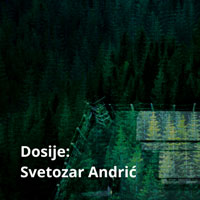
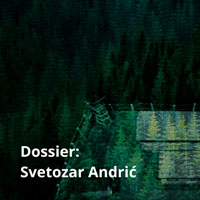 During the armed conflict in the territory of Bosnia and Herzegovina (BiH), Svetozar Andrić served as the commander of the 1st Birač Infantry Brigade of the Army of Republika Srpska (VRS), and, after July 1995, as the Deputy Commander and Chief of Staff of the Drina Corps of the VRS.
During the armed conflict in the territory of Bosnia and Herzegovina (BiH), Svetozar Andrić served as the commander of the 1st Birač Infantry Brigade of the Army of Republika Srpska (VRS), and, after July 1995, as the Deputy Commander and Chief of Staff of the Drina Corps of the VRS.
The evidence presented in this Dossier indicates that, from May 1992, when Andrić ordered the “expulsion of the Muslim population” from the Zvornik municipality and the establishment of the Sušica camp in Vlasenica1, members of the Birač Brigade, independently or in cooperation with other military and police units, committed numerous crimes in municipalities within the brigade’s zone of responsibility. The Dossier also presents evidence of Svetozar Andrić’s role in the genocide committed in Srebrenica in July 1995.
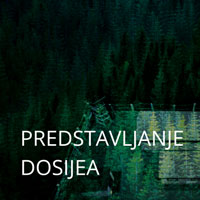
 On Wednesday, February 28, 2024, Humanitarian Law Center (HLC) will present its sixteenth dossier titled “Svetozar Andrić” (Dossier). The presentation will take place in the large hall of the Media Center in Belgrade (Terazije 3, 2nd floor), starting at 12 PM.
On Wednesday, February 28, 2024, Humanitarian Law Center (HLC) will present its sixteenth dossier titled “Svetozar Andrić” (Dossier). The presentation will take place in the large hall of the Media Center in Belgrade (Terazije 3, 2nd floor), starting at 12 PM.
Svetozar Andrić, former major in the Yugoslav People’s Army, served as the Commander of the First Birač Infantry Brigade of the Army of Republika Srpska (VRS) from May 1992 and as the Deputy Commander and Chief of Staff of the Drina Corps of the VRS from July 1995. The dossier presents evidence of war crimes committed in the area of responsibility of the units commanded by Svetozar Andrić.
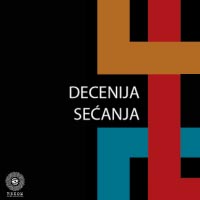
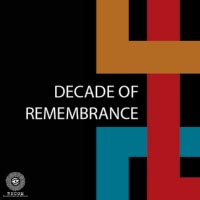 As part of the RECOM Reconciliation Network project, the Humanitarian Law Center is organising a debate on memory politics and commemorative practices in post-Yugoslav countries under the title Decade of Remembrance.
As part of the RECOM Reconciliation Network project, the Humanitarian Law Center is organising a debate on memory politics and commemorative practices in post-Yugoslav countries under the title Decade of Remembrance.
Researchers will present the results of monitoring commemorations of five events over the past ten years in Bosnia and Herzegovina, Kosovo, Croatia, Serbia, Montenegro, and North Macedonia. The discussion will focus on the conflicting narratives of the same events, which, instead of becoming less contentious over time, are showing increasing differences in the interpretation of judicial facts. The goal is to discuss ways to reconcile different perspectives and enhance the influence of the academic community and civil society in creating a culture of memory based on judicial facts and personal experiences.
The debate is taking place in hybrid format on January 25 2024 from 11:00 to 15:00 CET. It is open for public on Zoom, with language interpretation provided, with mandatory registration on the link.


This paper focuses on Croatia and the use of hate speech and controversial symbols for the maintenance of symbolic boundaries, the reinforcement of a one-sided version of the past, and the mobilization of voters. The presence and use of the Ustaša salutation, “Ready for the Homeland” (Za dom spremni – ZDS) is a consistent example of those tendencies. In recent years, the salutation has become increasingly intertwined with the legacies of World War Two and the 1990s Croatian War of Independence, while simultaneously reflecting the rise of nationalism and radical-right parties and movements in Croatia as well as abroad. The paper presents insights into the ways ZDS is used to reify national identity, while centering around some of the main actors perpetuating this dynamic, such as politicians and war veterans. Accordingly, it focuses primarily on the case of the memorial plaque erected in 2016 by former members of the Croatian Defence Forces paramilitary unit, which included the ZDS salutation. At one point threatening to topple the government, the case demonstrates how the salute is used to maintain the dominant narrative of the Homeland War.

 Among them, in the Politics & Advocacy category, are Rukshana Kapali, Nepal, Sonia Guajajara, Brazil, Monica McWilliams, UK, Summia Tora, Afghanistan, Sepideh Rashnu, Iran, Neema Namadamu, Democratic Republic of Congo, Bella Galhos, East Timor,Rina Gonoi, Japan, Maryam Al-Khawaja, Bahrain/Denmark, Christiana Figueres, Costa Rica, Tamar Museridze, Georgia, Iryna Stavchuk, Ukraine, Nataša Kandić, Serbia, Yael Braudo-Bahat, Israel, Michelle Obama, US, Shamsa Araweelo, Somalia/UK, Bernadette Smith, Turtle Island / Canada, Renita Holmes, US, Dehenna Davison, UK, Yasmina Benslimane, Morocco, Xu Zaozao, China, Alicia Cahuiya, Ecuador, Najla Mohamed-Lamin, Western Sahara, Sofia Kosacheva, Russia, Ulanda Mtamba, Malawi, Amal Clooney, UK/Lebanon and Gloria Steinem, US.
Among them, in the Politics & Advocacy category, are Rukshana Kapali, Nepal, Sonia Guajajara, Brazil, Monica McWilliams, UK, Summia Tora, Afghanistan, Sepideh Rashnu, Iran, Neema Namadamu, Democratic Republic of Congo, Bella Galhos, East Timor,Rina Gonoi, Japan, Maryam Al-Khawaja, Bahrain/Denmark, Christiana Figueres, Costa Rica, Tamar Museridze, Georgia, Iryna Stavchuk, Ukraine, Nataša Kandić, Serbia, Yael Braudo-Bahat, Israel, Michelle Obama, US, Shamsa Araweelo, Somalia/UK, Bernadette Smith, Turtle Island / Canada, Renita Holmes, US, Dehenna Davison, UK, Yasmina Benslimane, Morocco, Xu Zaozao, China, Alicia Cahuiya, Ecuador, Najla Mohamed-Lamin, Western Sahara, Sofia Kosacheva, Russia, Ulanda Mtamba, Malawi, Amal Clooney, UK/Lebanon and Gloria Steinem, US.
https://www.bbc.co.uk/news/resources/idt-02d9060e-15dc-426c-bfe0-86a6437e5234

 The Humanitarian Law Center in cooperation with the Global Initiative for Justice, Truth and Reconciliation consortium is organizing a three-day international conference titled “Enhancing Sustainability of Civil Society Organizations for Digital Archiving”. The aim of this event is to support civil society organizations from around the world in developing their digital archives dedicated to systematic and mass violations of human rights.
The Humanitarian Law Center in cooperation with the Global Initiative for Justice, Truth and Reconciliation consortium is organizing a three-day international conference titled “Enhancing Sustainability of Civil Society Organizations for Digital Archiving”. The aim of this event is to support civil society organizations from around the world in developing their digital archives dedicated to systematic and mass violations of human rights.
The conference will be held from November 1st to 3rd, 2023, in Belgrade, with the participation of experts and representatives of organizations documenting human rights violations from more than 15 countries, including Argentina, Ukraine, Indonesia, Spain, Croatia, Sri Lanka and others. The diversity of participants and the social and political contexts in which these organizations engage in documenting and digital archiving of human rights violations will provide a variety of perspectives and enrich the discussions.

Sorry, this entry is only available in srpski.

Sorry, this entry is only available in srpski.

Sorry, this entry is only available in srpski.